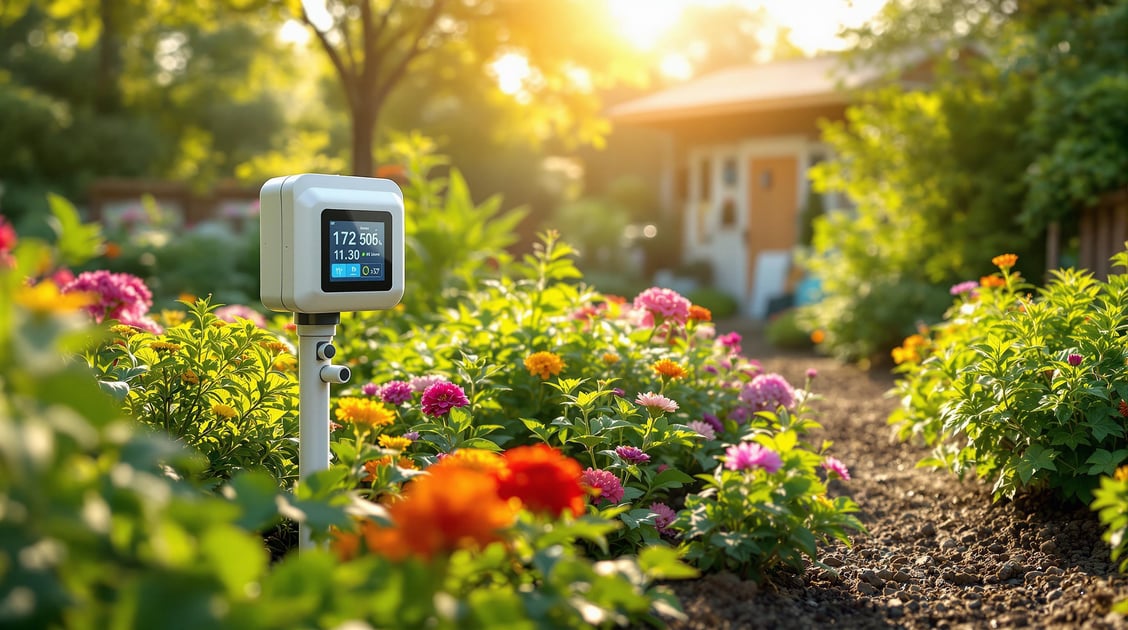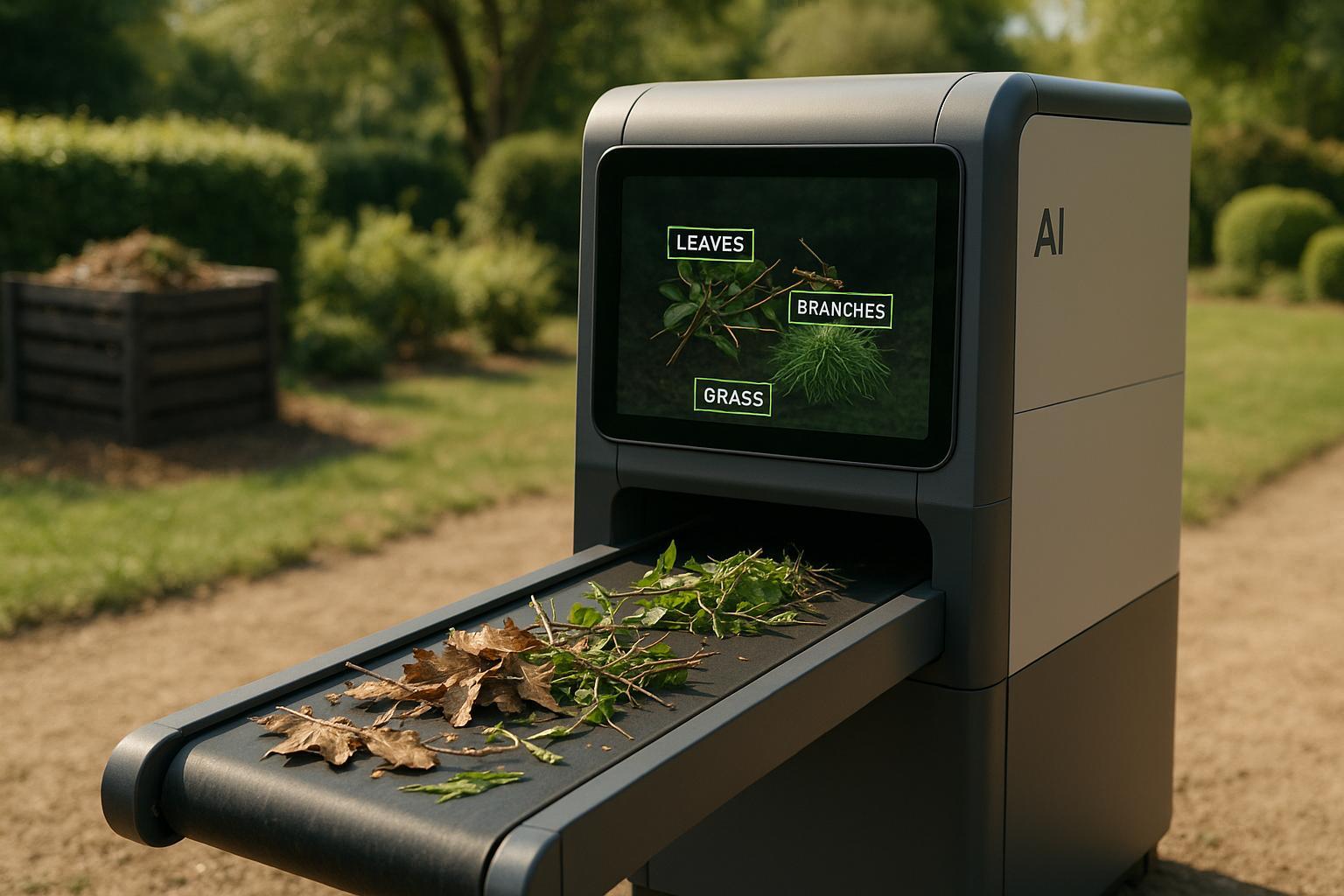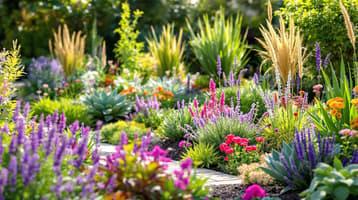How AI Predicts Garden Maintenance Needs

AI tools are changing the way gardens are cared for by using data to create precise schedules for watering, pruning, and fertilizing. Here's what you need to know:
- Key Benefits: AI saves water, reduces fertilizer waste, and cuts down on time spent planning garden tasks.
- How It Works: Sensors track soil moisture, temperature, and light, while AI combines this with weather data to adjust care routines automatically.
- Personalization: Tools like AIGardenPlanner create custom schedules based on your location, garden photos, and goals.
- Cost: Starting at $15, these tools offer affordable solutions for gardeners.
AI makes garden care simpler and more efficient, helping plants thrive year-round while saving you time and resources.
How to use AI to Make Garden Planning More Efficient (8 ...

AI Systems for Garden Care
AI systems use data like climate, soil conditions, and plant types, combined with real-time inputs from garden sensors. These sensors track factors such as soil moisture, temperature, light levels, and pH, while also incorporating local weather updates. Machine learning models process this data to fine-tune watering, fertilizing, and pruning schedules. For example, if moisture levels start to decrease, the system can automatically adjust irrigation plans to ensure plants stay healthy.
Data Types That Guide AI Decisions
AI uses a combination of sensor inputs and weather information to create personalized garden-care schedules. It factors in data about climate, soil, and plants to make these decisions.
Weather and Seasonal Data
By analyzing both historical and live weather data, AI adjusts maintenance plans to account for changing seasons and conditions.
Soil Data
AI examines details like soil texture, pH levels, nutrients, and moisture to optimize watering and fertilization schedules.
Plant Information
Each plant's specific needs - such as light, water, and nutrients - are matched with local environmental data. This helps AI decide when to water, prune, or fertilize.
Up next, we’ll explore how these data sources improve the accuracy of AI models.
sbb-itb-4d6a8dd
🚀 Ready to Reinvent Your Garden?
Join thousands of homeowners who have transformed their gardens using our AI design tool. Upload one photo to explore endless possibilities.
Get your AI garden designs →Research Results on AI Accuracy
Research highlights how AI models improve accuracy and save resources in garden maintenance.
AI Model Performance
AI models have been shown to effectively handle tasks like predicting watering needs, fertilization, pruning schedules, and pest detection. They achieve this by analyzing real-time data such as weather forecasts, soil moisture levels, and plant health metrics.
Key Improvements
Early users have reported several benefits:
- Water Conservation: Smarter irrigation schedules significantly lower water use while keeping soil moisture levels optimal.
- Fertilizer Efficiency: Tailored plans minimize fertilizer waste, reducing costs.
- Labor Savings: Automated task scheduling reduces planning time, allowing gardeners to focus on hands-on activities.
These findings demonstrate how AI can provide personalized care plans and digital tools to enhance garden maintenance.
Custom Garden Care Features
AIGardenPlanner uses advanced insights to create tailored care features, adjusting schedules and visuals to fit your garden's specific needs. By incorporating models that focus on water efficiency and reduced labor, it ensures every task is handled effectively.
The AI evaluates factors like climate, soil, and plant data to provide personalized care plans that adapt over time.
Personal Care Plans
The AI Plant Advisor in AIGardenPlanner crafts your schedule using:
- Climate data for your location: Suggests plants and care routines suited to your hardiness zone.
- Photo analysis of your garden: Reviews uploaded images to understand your plant layout and composition.
- Your gardening goals: Customizes care plans based on your preferences, style, and seasonal interests.
These plans include detailed maintenance schedules and care instructions tailored to your plants.
Digital Tools and Guides
- High-quality design downloads: Ready-to-print garden layouts for easy installation.
These tools make it simple to stick to your personalized care plan.
Conclusion
AI combines data on climate, soil, and plants to create tailored forecasts, making garden care much more accurate and efficient.
Key Advantages
Research highlights that AI tools help gardeners by offering:
- Better Accuracy: These tools provide precise maintenance schedules, taking the guesswork out of garden care.
- Cost Savings: Starting at just $15, they help reduce resource waste and lower overall costs.
- Time Efficiency: Complete care plans can be generated in just minutes.
For example, AIGardenPlanner's AI Plant Advisor offers location-specific care schedules and detailed growing guides, helping to maintain healthy gardens all year long.
These AI tools are shaping the future of gardening, bringing accuracy and efficiency to both hobbyists and professionals while saving time and money.
Related posts
Related Articles

How AI Tracks Garden Waste in Real Time
Explore how AI revolutionizes garden waste management through real-time tracking, smart sorting, and enhanced composting techniques.

Seasonal Garden Design: Lessons from Chinese Practices
Explore seasonal garden design inspired by Chinese practices, blending nature and philosophy for beauty throughout the year.

Checklist for AI-Driven Biodiversity Planning
Learn how AI tools can simplify biodiversity planning in your garden, helping you choose plants, design layouts, and maintain a thriving ecosystem.

Effective Ways to Stop Cats from Pooping in Your Garden
Discover key strategies to deter cats from using your garden as a litter box. Learn how to create physical barriers, use natural deterrents, and train your cat to avoid the garden.

AI Tools for Designing Snow-Themed Gardens
Learn how AI tools simplify the creation of enchanting snow-themed gardens tailored to your climate and design preferences.

Best AI Tools for Heat-Tolerant Garden Planning
Learn how AI tools can help you design and maintain a heat-tolerant garden with optimal plant selection and efficient watering strategies.